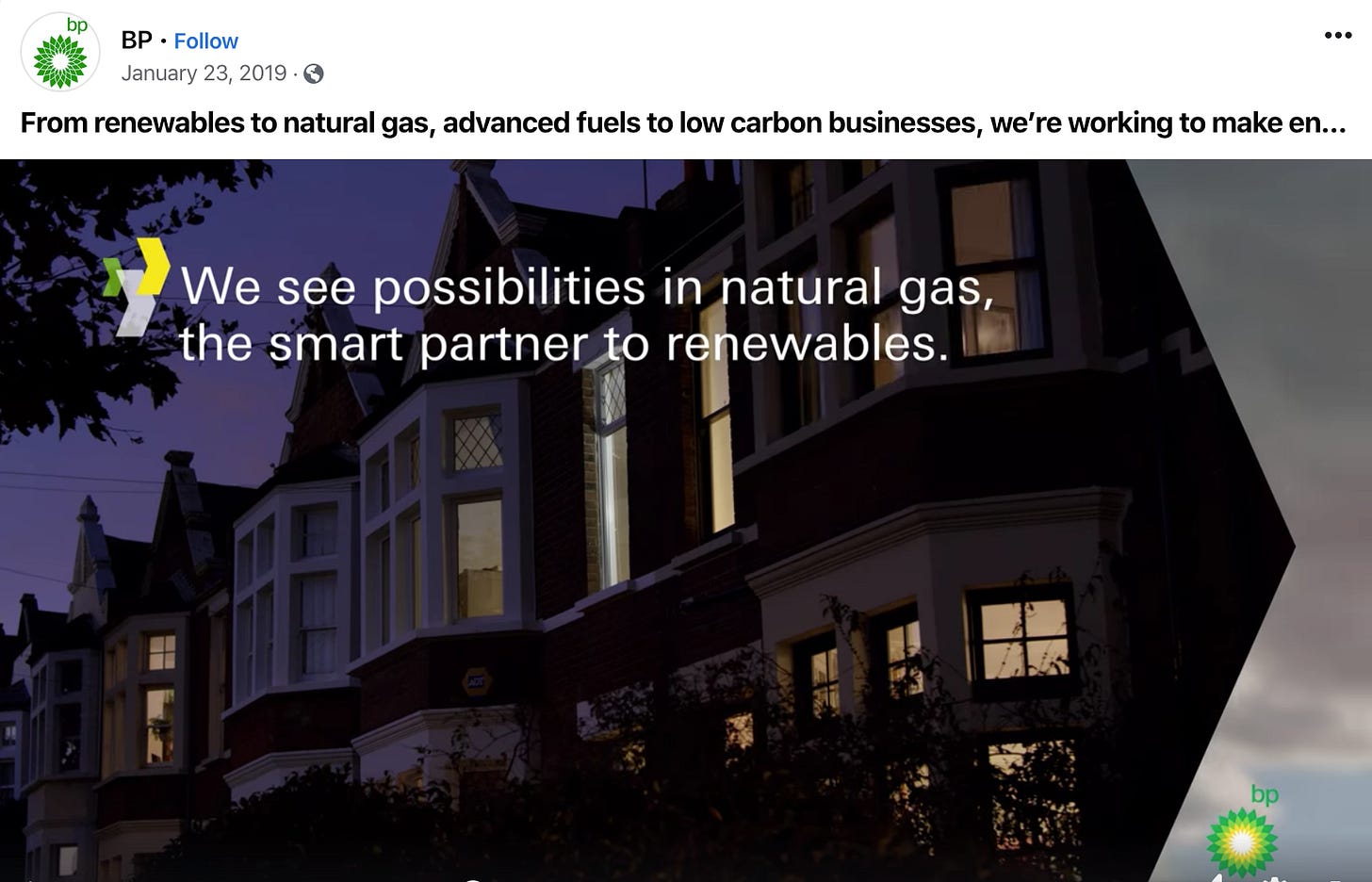An update on BP's climate ads
An intergovernmental economic body ruled that BP’s “Possibilities Everywhere” campaign potentially violated rules governing corporate conduct.

Remember BP’s “Possibilities Everywhere” ad campaign?
We’ve documented it extensively over at the Fossil Fuel Ad Anthology—our project to collect climate-related advertisements from fossil fuel companies, on Instagram at @fossilfuelads.
We also covered it back in February, when BP announced it would stop “corporate reputation advertising” as part of its…


